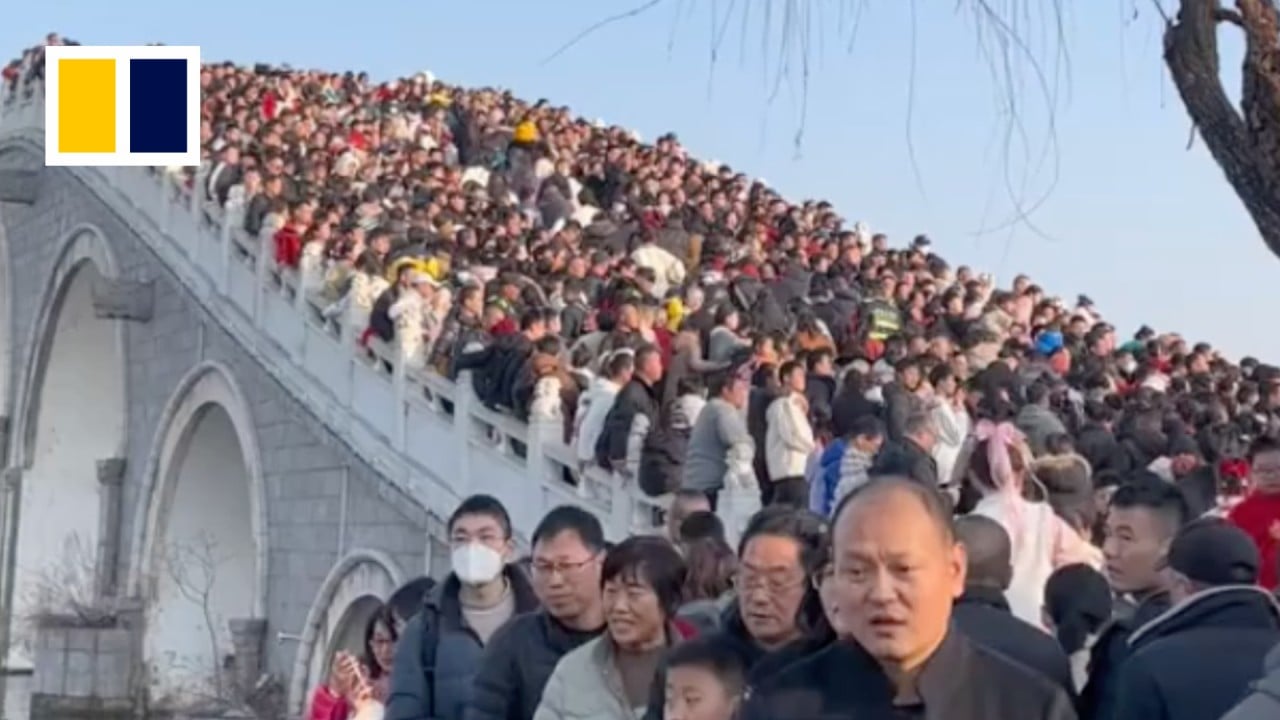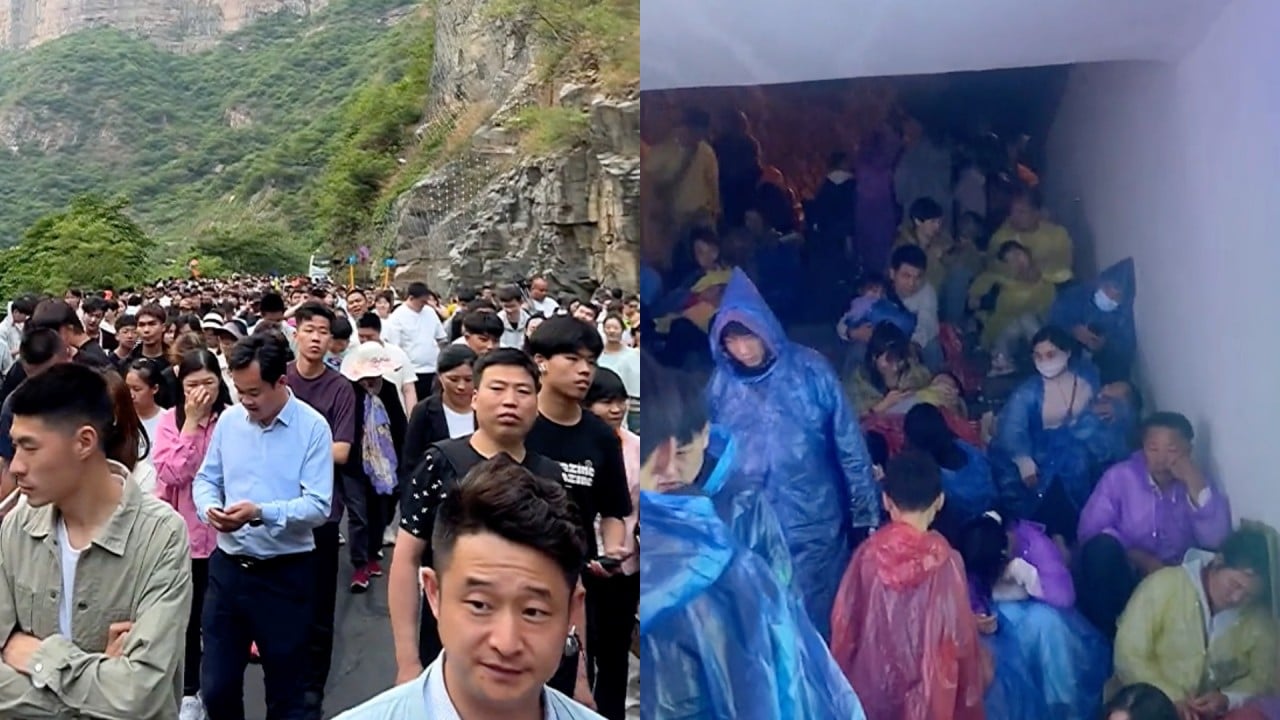However, tourists spent an average of 565 yuan (US$78) this year – up 4 per cent year-on-year, but below the 603 yuan average reported for 2019.
Tourism has stood out as a growth performer even as overall domestic demand remains weak, with some local governments reporting record figures. Experts said that rising travel demand will sustain the sector’s steady recovery for the rest of the year.
Song said the era of Covid-19 prompted consumers worldwide to reassess their spending priorities, with shared experiences such as dining out, attending live events and travelling gaining precedence over luxury or hi-tech items.
The capital city of Beijing reported an influx of 16.966 million tourists during the holiday, generating record tourism revenue of 19.62 billion yuan.
Anhui province in eastern China, a hub for electric vehicle manufacturing, reported a 36.2 per cent surge in tourists during the holiday compared to 2019. Tourism revenue also soared in relation to that year, rising 55 per cent to a record high of 27.28 billion yuan.
While traditional destinations continue to flourish, smaller towns and cities are attracting more visitors.
Travel bookings in smaller counties and cities surged 140 per cent year-on-year, with ticket purchases for local attractions up 151 per cent year-on-year and surpassing the national average, Chinese travel agency Ctrip said on Sunday.
Local governments are seizing this opportunity to develop more tourism products and generate revenue
“On one hand, residents’ income expectations remain low, and they are trying to travel to newer and affordable cities to save on costs,” according to Lin Huanjie, dean of the Institute for Theme Park Studies in China.
“On the other hand, some small and obscure counties can satisfy the curiosity of tourists,” Lin said. “Local governments are seizing this opportunity to develop more tourism products and generate revenue. Increased travel is also a way for Chinese citizens to heal the scars from the pandemic.”
Major retail and catering companies witnessed a 6.8 per cent year-on-year increase in sales over the past five days, while online retail sales rose by 15.8 per cent, China’s Ministry of Commerce said on Monday.
China’s box office revenue during the holiday reached 1.53 billion yuan, similar to last year and 2019 but down 9 per cent from 2021, according to a Monday report from the China Film Administration.
In addition, China received around 779,000 foreign tourists in the past five days per the National Immigration Administration, up 98.7 per cent from the same period last year.
“Such high growth came due to the minimal presence of foreign tourists in China during the same period last year, as Beijing had just started opening up entry visa processing in mid-March,” said Steven Zhao, CEO of the Guilin-based online travel agency China Highlights.
Japan, South Korea and countries in Southeast Asia – as well as Macau and Hong Kong – were the top preferences for travellers leaving mainland China, the agency said.
“In the coming half of the year, China’s inbound tourism is expected to rebound to 70 to 80 per cent of its 2019 levels. However, it may take another two to three years for outbound tourism to fully recover,” Zhao added.
Song from ING said China will sustain strong growth in domestic and inbound tourism in 2024.
“As more investment is made into the tourism industry, this could be a multi-year driver of growth,” she said. “China has rich cultural and ecological tourism hotspots, providing a great foundation to build upon.”

